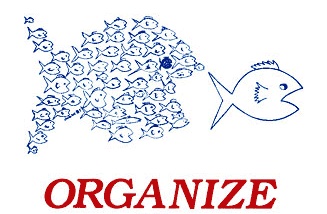
The Hobbit saga has been an ugly but edifying lesson in the realities of how industrial action interacts with political posturing and national identity. My own view is that Actor’s Equity did their industry and their country — I would say ‘their membership’, but when they set this ball rolling they didn’t have one — an enormous disservice. Lacking a mandate and any legal standing, they undertook almost the worst possible course of action of calling an international SAG boycott. They attempted to hold a national icon and his nationally-iconic production to ransom at the apparent behest of an Australian union (the MEAA) with a history of this sort of aggressive mismanagement and who stands to gain from any reputational damage suffered by the New Zealand film industry. Their cause is worthy, but they picked the wrong fight with the wrong person at the wrong time, on the wrong basis, employing the wrong tactics, and did so without the support of their industry. Almost everything they could do to lose this battle, they did.
But too much has already been written on that topic, and I won’t add to it any further. The point I’d rather make is that the incompetence shown by AE in this dispute would never have thrived in a more robust industrial relations culture: that is to say, one in which union membership and participation was the norm rather than the exception, in which more workers had an understanding of what their union was there for and the union in question understood their industry’s needs and agenda better.
Fundamentally, the entire problem here is AE’s lack of a mandate: even leaving aside the fact that they had no legal standing as a NZ union until this time last week, the trouble is that they represent a tiny fraction of the actors who form a tiny fraction of those responsible for the production of any film, and yet they have the apparent ability to blacklist that entire industry (whom they don’t represent). Even the most ardent trade unionist can surely see the moral hazard here. All those who we’ve seen fronting AE have been the best-respected and most-established actors; actors whose careers aren’t in material danger regardless of the outcome of The Hobbit. But what of those actors who are genuinely struggling, whose faces don’t appear in tens of thousands of living rooms every Tuesday night, and who don’t top “best-of” lists? And what of the silent legions of drivers, designers, artists, labourers, riggers, electricians, carpenters and caterers who are the real motive engine behind the film industry? Are their needs well-served by the actions of a few prima donnas who represent them without their consent? Apparently not, which is why a thousand of them turned out to protest the actions of that unelected few. Orcs, Chris Trotter called them; useful idiots said Idiot/Savant.
To an extent it’s their fault for not being adequately organised to mount a counter-insurgency against AE’s hijack of their industry. And that’s why my suggestion is for film industry workers to arm themselves and prepare to fight for their needs. Whether it’s in separate unions by sector or a single, unified screen workers’ union doesn’t much matter, as long as there is strong and robust organisation behind it which elects leaders who hold a genuine mandate to speak for the real needs of their industry. Nature abhors a vaccuum, and the only way that a handful of pretty faces and household names with little or no industrial relations experience and an Australian carpetbagger with a reputation for mischief-making get to speak for an entire industry is when the alternative is nothing. Conventional wisdom — particularly from the government — is to de-unionise, and already the veiled threats about the consequences of a general strike during the 2011 Rugby World Cup are beginning. But de-unionisation at a time like this simply cedes the field. Efforts must be redoubled — not only to negotiate the sorts of concessions gained by Irish actors for collective bargaining among independent contractors, but to ensure that whoever claims to have a union mandate in future has the crowd with the torches and pitchforks following them, rather than chasing them.
L
